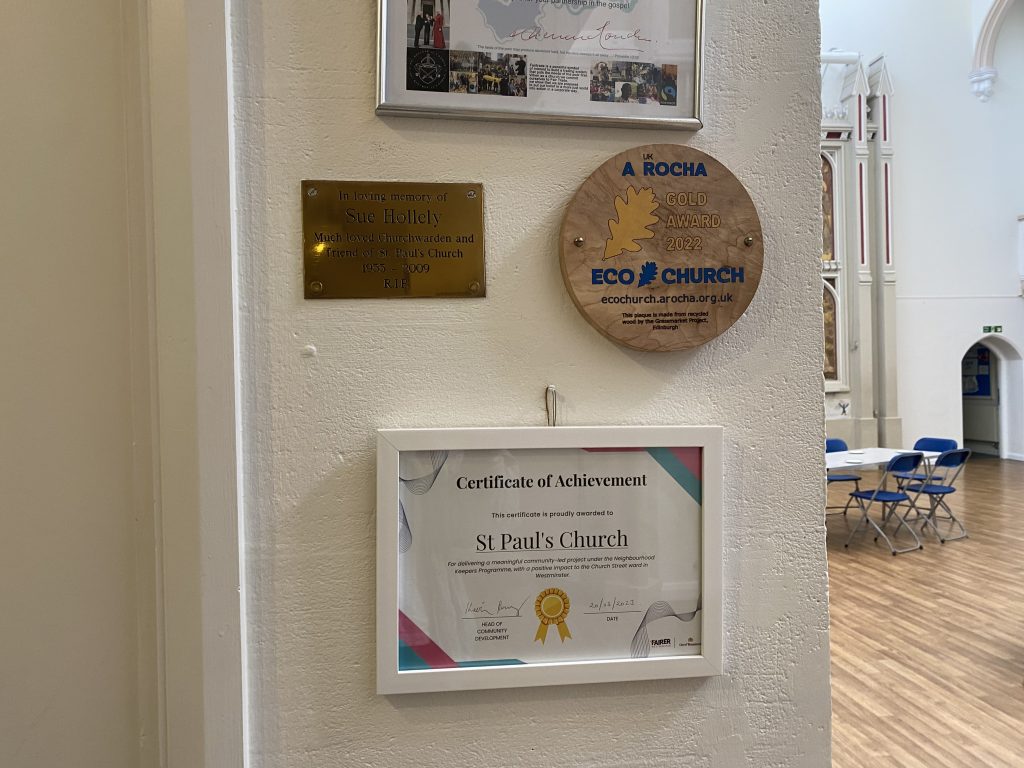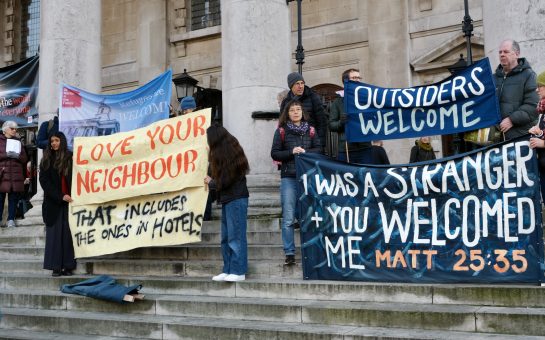Faith-based organisations constitute more than a third of all the institutions worldwide that have pledged to take their money out of fossil fuels.
According to the Global Fossil Fuel Divestment Commitments Database, faith groups make up 35% of divestment pledges to date, numbering more than governments, pension funds and private companies combined.
That’s more than double any other type of organisation, with educational institutions the second highest at merely 16%.

Of those faith organisations committed to divestment, nearly a third are based in the UK, comfortably the most of any country, with 14 in London.
London alone has more faith-based organisations divesting than all but seven countries worldwide.
Climate finance director at Stand.earth – the organisation that manages the global divestment database – Richard Brooks said: “Divestment has increasingly become a financially motivated movement but it began as a moral movement.
“It was less about moving money out of fossil fuels and more about stigmatising that industry and reducing its political power.”
Divestment has an impressive history as a strategy for driving social change, most notably through its influence on the end of apartheid in South Africa during the 1980s.
Calls to divest from fossil fuels began on North American campuses some 20 years later in 2011, under the leadership of renowned environmentalist Bill McKibben.
Since then, fossil divestment has grown into a global campaign with more than $40 trillion of stocks and shares removed from coal, oil and gas companies by 1,615 governments and institutions worldwide.
Local faith institutions were among the earliest pledgers, but in the early years of the campaign educational institutions, governments, philanthropic foundations and faith groups were all committing to divestment at a similar rate.
But as the campaign gathered momentum from 2016, faith groups began overtaking other types of organisation in the numbers of divestment pledges they were making.
The idea of divestment as a moral movement resonates as much at a local level as it has internationally, and is one of the reasons why St Paul’s Church Marylebone, North London, committed to divestment in 2022.
St Paul’s was only the second church in London to win a gold Eco Church award in a national scheme that recognises churches taking action for climate.
St Paul’s Church’s Reverend Donna McDowell explained: “Taking action on climate change isn’t separate to who we are.
“Creating more just systems and safeguarding life on Earth is integral to the mission and structure of the Church, and this will be the same in other faiths to varying extents.”
Grassroots campaigning
Westminster churches net zero officer Alison Moulden is based at St Paul’s but supports around 40 other local churches with their own decarbonisation plans.
Moulden said: “If the diocese divests, that gives a strong witness to other churches to divest.
“If those churches divest, then their congregations are getting a signal as well. It creates a ripple effect that goes outwards.
“The amazing thing is that this movement is coming from the grassroots, through individual churches pushing for change from the ground up.”

Nowhere is this more evident than in the Church of England’s divestment announcement in July last year, following a decade of campaigning coordinated by Operation Noah, a Christian charity working with the Church to inspire action on the climate crisis.
Even as divestment gained momentum in UK churches throughout the 2010s, the Church of England continued to argue that staying invested in fossil fuel companies gave them a seat at the table from which to pressure fossil companies to change.
Operation Noah trustee and communications officer Cameron Conant said: “This strategy has never worked with fossil fuel companies.
“It’s the difference between convincing Starbucks to stop using single use plastic and convincing Starbucks to stop selling coffee.
“You’re trying to get them to stop doing the thing that they’re entirely set up to do.
“In the end, we exerted pressure to the point where they couldn’t make any more excuses.
“The Church of England also persuaded a lot of other institutions to stay invested. So when they finally announced divestment I think it opened the door for many others to follow.”
Ripple effect
Faith groups are the biggest contributor to divestment in terms of the number of contributors but one of the smallest in terms of asset size, reflecting their generally smaller wealth compared with some other types of organisations.
Although more faith-based groups have committed to divestment than any other type of organisation, less than 1% of divested assets come from faith institutions.
Private companies, on the other hand, hold 80% of divested assets despite accounting for only 8% of organisations committed to divestment.

But if divestment is as much a moral campaign as it is a financial one, the influence of faith leaders should not be underestimated.
Conant explained: “Divestment is not just about moving money, it’s about shifting perception.
“We’re saying that whether you are liberal or conservative, wherever you are in the world, it is not acceptable to invest in fossil fuels.
“We are changing a narrative and bringing unexpected people together, and that’s really exciting.”
Indeed, the moral authority and convening power of faith-based organisations is not only evident in their engagement with divestment, but with other kinds of climate action too.
Last week, the Pope invited mayors and governors – including Sadiq Khan – to a climate summit at the Vatican to discuss the vital role of cities in meeting national climate targets.
The week before, Reverend Sue Parfitt, 82, wore her clerical collar as she damaged the glass protecting the Magna Carta at the British Library, in a two-person Just Stop Oil protest.
Judy Bruce and Reverend Dr Sue Parfitt were released from police custody last night after breaking the glass casing of the Magna Carta yesterday 🔥 pic.twitter.com/u48SzuD8VF
— Just Stop Oil (@JustStop_Oil) May 11, 2024
Octogenarian faith leaders may not be many people’s idea of typical climate activists, but the reality is that there exists a deep affinity between religious values and climate action.
The leadership of faith-organisations in the fossil fuel divestment movement is a testament to that.





Join the discussion